Joint Master of Science with Le Wagon
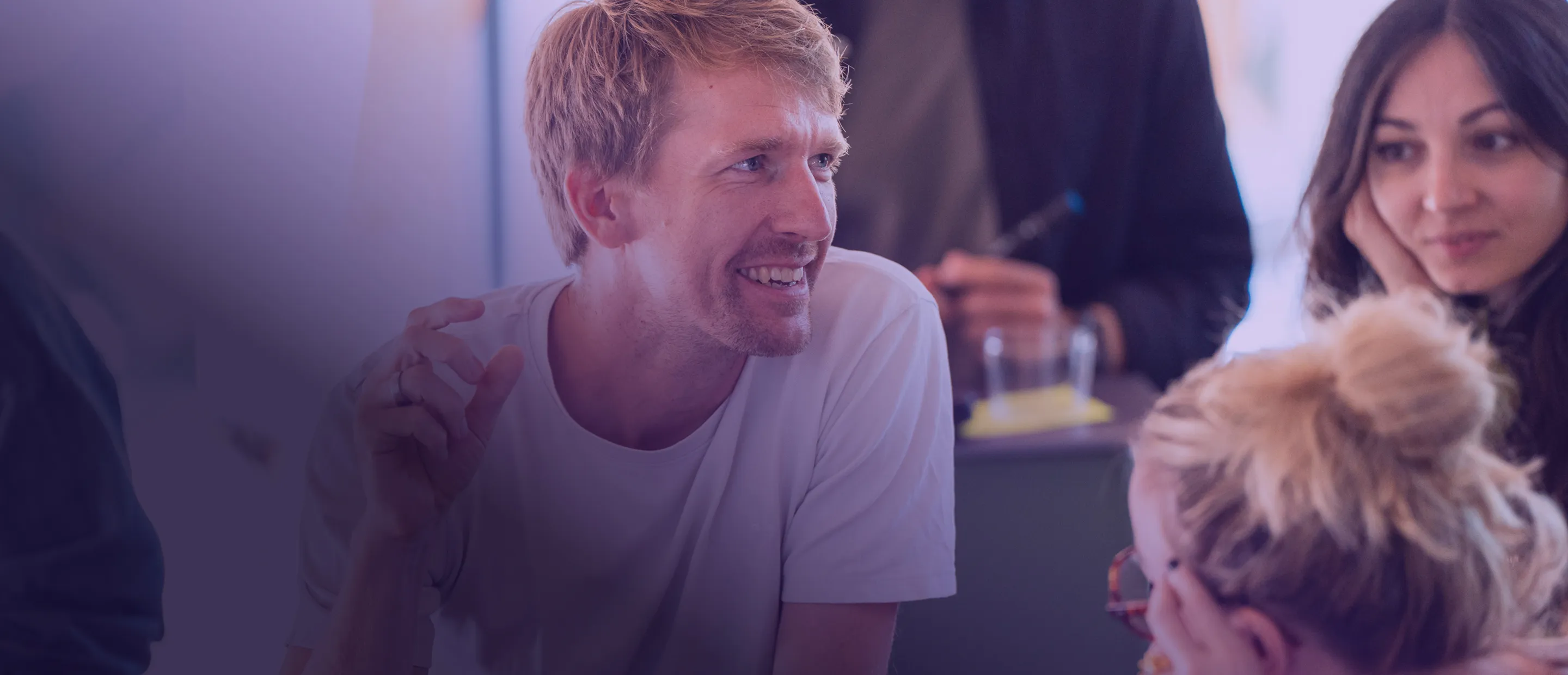


#1 university in Germany for innovative education and impactful careers in 2024
Start Your Tomorrow University Journey
Join Our Open Day


Start Your Application with Tomorrow University
A Curriculum To Boost your Impact
Le Wagon bootcamps are intensive, hands-on programs designed to prepare you for tech careers in weeks. Bootcamps prioritize practical skills, collaborative projects, and career support, making them ideal for a fast, confident leap into the tech industry.
Join a global community of 27,000+ alumni, gain industry-ready skills, and access top career opportunities through flexible, impactful programs recognized worldwide.

Build Your Perfect Skill Set
Data Analytics
Transform raw data into business-ready insights. Learn to extract, analyze, and visualize data using Python and SQL, and build automated dashboards that support strategic decisions.
AI Software
Design and build intelligent web apps from day one. This full-stack bootcamp combines web development with real-world AI tools like ChatGPT and semantic search—equipping you to create scalable, AI-powered solutions for the future.
Data Science & AI
Dive into AI innovation with deep learning, Python, and machine learning techniques. Work with tools like TensorFlow and Hugging Face to build data-driven AI applications for the real world.
Growth Marketing
Build and scale performance-driven marketing campaigns. Master data-driven strategies, no-code tools, KPI optimization, and campaign building for impactful business growth.
Your Path to Tomorrow University
Find your program
Talk to us
Start your journey

Welcome to Tomorrow University!
Why our Learners Love Tomorrow University 💜

No Exams, Challenge-Based Learning

Remote, with Global Community Support

Personalized Learning for Real-World Impact
Accessible Learning, Flexible Financing
Financial Support That Fits Your Journey
Scholarships
This scholarship supports individuals passionate about sustainability and committed to driving environmental and social change through responsible leadership.

Sustainability Impact Scholarship
Criteria:
- Clear mission centered around creating positive change across the society, environment and economy.
- Record of participation in initiatives focused on sustainability and positive impact like projects, ventures, or volunteering, activism, associations, clubs OR tangible impact created.
- Clearly defined field of involvement (e.g. environmental cause).
- A plan of how the applicant will engage within and beyond the ToU community.
Application Process:
- Video or letter of motivation: Submit either a video or letter of motivation elaborating on how you meet the above mentioned eligibility criteria. On average, we advise 5 minutes for the video or 600 words, telling us why you are the ideal candidate for this scholarship and how you exemplify its essence.
- CV: Submit your CV to give us a glimpse on your previous educational or professional background.
Evaluation Process:
- Committee evaluation: Our dedicated scholarship committee will diligently review your application.
- Community fit: Our admissions and learner success team will evaluate your Tomorrow University Community fit in a call.
- Timely response: We will come back with you in maximum 5 working days.
This scholarship is for tech enthusiasts, innovators and future technopreneurs driven by a deep passion to leverage technology for innovation and positive change.

Tech Innovator Scholarship
Application Process:
- Video or letter of motivation: Submit either a video or letter of motivation elaborating on how you meet the above mentioned eligibility criteria. On average, we advise 5 minutes for the video or 600 words, telling us why you are the ideal candidate for this scholarship and how you exemplify its essence.
- CV: Submit your CV to give us a glimpse on your previous educational or professional background.
Evaluation Process:
- Committee evaluation: Our dedicated scholarship committee will diligently review your application.
- Community fit: Our admissions and learner success team will evaluate your Tomorrow University Community fit in a call.
- Timely response: We will come back with you in maximum 5 working days.
This scholarship supports individuals with innovative ideas and entrepreneurial ambition, helping them launch or scale their ventures and turn visions into reality.

Entrepreneurs for Tomorrow Scholarship
Application Process:
- Video or letter of motivation: Submit either a video or letter of motivation elaborating on how you meet the above mentioned eligibility criteria. On average, we advise 5 minutes for the video or 600 words, telling us why you are the ideal candidate for this scholarship and how you exemplify its essence.
- CV: Submit your CV to give us a glimpse on your previous educational or professional background.
Evaluation Process:
- Committee evaluation: Our dedicated scholarship committee will diligently review your application.
- Community fit: Our admissions and learner success team will evaluate your Tomorrow University Community fit in a call.
- Timely response: We will come back with you in maximum 5 working days.
This scholarship aims to close the opportunity gap by supporting underrepresented talents, empowering diverse voices in sustainability, technology, entrepreneurship, and leadership.

Global Diversity Scholarship
Criteria:
- Applicant must be a member of an underrepresented or marginalized group (including but not limited to underrepresented racial populations, women, LGBTQI, low income, individuals with disabilities, etc.)
- Applicant shows record of academic excellence and proof of hard work in prior education.
- A plan of how the applicant will engage within and beyond the ToU community.
Application Process:
- Letter of motivation: with approximately 600 words for all the questions that follow: a) introduce yourself and include an account of your early years i.e. where you grew up; how you financed your previous education; b) briefly describe how you envisage contributing to the future development of your field of study; c) give us the main reason why you think our program is relevant to your future professional and personal development.
- CV: Submit your CV to give us a glimpse on your previous educational or professional background.
Evaluation Process:
- Committee evaluation: Our dedicated scholarship committee will diligently review your application.
- Community fit: Our admissions and learner success team will evaluate your Tomorrow University Community fit in a call.
- Timely response: We will come back with you in maximum 5 working days.
Eligibility Criteria
Bootcamp Specific Criteria
- In order to be eligible for the different Bootcamps the following is required:
- A quiz to assess your current skill level
- An online prep course to ensure you're ready to begin
- The Data Analysis & AI track additionally requires prior knowledge of Python, mathematics, and statistics
Formal Criteria
- Applicants for the 90 ECTS Master of Science (MSc) in Sustainability, Innovation & Technology must have an undergraduate degree with at least 210 ECTS or equivalent credit points, completed over a standard study period of at least six semesters.
- Applicants for the 120 ECTS MSc in Sustainability, Innovation & Technology must have an undergraduate degree with at least 180 ECTS or equivalent credit points, completed over a standard study period of at least six semesters.
- The undergraduate degree must be in a relevant subject area, such as:
- Business, economics, or sustainability-related fields (e.g., business administration, sustainable development, entrepreneurship, or management).
- Related fields such as environmental sciences, sustainability sociology, policy, technology, computer science, AI, data science, or humanities with a sustainability focus.
- Applicants must demonstrate sufficient English language proficiency at a minimum B2 level according to the European Framework of Reference for Languages.
- Motivation must be shown through the application form and will be further assessed during the admission process.
- An admission interview is mandatory to evaluate eligibility and alignment with the program.
Admission without an Undergraduate Degree
A previous undergraduate university degree is required to apply. Although applicants without a degree but with vocational training and relevant professional experience may sometimes be eligible for special entrance exams, this does not apply to this program. Therefore, we cannot accept applications without a completed university degree.
Policy on ECTS Credits and Graduation Requirements
- To graduate with the MSc, learners must achieve a total of 300 ECTS by the end of the program.
- Learners with a 180 ECTS bachelor’s degree enrolling in the 120 ECTS MSc will meet the requirement naturally.
- Learners with a 210 ECTS bachelor’s degree enrolling in the 90 ECTS MSc will also meet the requirement.
- In rare cases, learners with a 180 ECTS bachelor’s degree seeking the 90 ECTS MSc may have 30 ECTS credited from professional experience to reach the required 300 ECTS. This is strongly discouraged in favor of the 120 ECTS program.
- Professional experience must be relevant to MSc subjects, involve at least two years of full-time work, and may include sustainability, innovation, or technology-related roles.
Explore How our Learners Personalize their Journeys
At Tomorrow University, you can curate your learning journey as you go.
With a wide range of elective modules, you have the freedom to shape your curriculum to your mission—no need to decide upfront. Build your path along the way, choosing a specialization from the start or letting it evolve as you progress. Some popular pathways are:






Collaborate on Real Projects With Industry Partners
Choose Hybrid & Study all around Europe






Learn from Industry Leaders

.webp)




Frequently Asked Questions
What makes the Joint MSc with Tomorrow University and Le Wagon so unique?
This program combines Tomorrow University’s sustainability expertise with Le Wagon’s hands-on tech training, integrating advanced skills in coding, AI, and data science with systemic thinking and innovation. By tackling real-world challenges in areas like climate and health tech through hybrid formats, immersive bootcamps, and applied thesis projects, you’ll be prepared to drive transformative change and create impactful solutions. The “joint” degree reflects the unique collaboration between the two institutions: Tomorrow University awards the accredited MSc, ensuring academic rigor and global recognition, while Le Wagon provides a certificate for its immersive bootcamp.
Is the program part-time or full-time?
The program offers flexibility, with both full-time and part-time options depending on the track you choose:
- 90 ECTS: Complete in 18 months full-time or 24 months part-time. Select one bootcamp as part of your specialization phase.
- 120 ECTS: Complete in 24 months full-time or 30 months part-time. Alongside your bootcamp, tailor your learning by selecting two elective Impact Certificates during the specialization phase to further deepen your expertise.
For the bootcamp component:
- In the part-time program, the bootcamp spans 6 months remote.
- In the full-time program, the bootcamp is 2 months onsite at one of Le Wagon’s global hubs.
Is the program remote or hybrid? How do I decide?
You can choose between remote or hybrid formats:
- Remote is fully online and offers maximum flexibility.
- Hybrid includes a large remote portion, but the bootcamp is onsite and lasts for 2 months. The onsite bootcamp takes place at one of Le Wagon’s European hubs, such as Paris, Berlin, Lisbon, Barcelona and others.
Your choice depends on your preference for location flexibility and your ability to travel for the bootcamp.
What does the Bootcamp entail?
The bootcamp is a core part of the program, providing hands-on training in advanced technology. A bootcamp is a short, intensive program (400 hours - 15 ECTS) focused on teaching practical, job-ready tech skills in Web Development, Data, AI and No-code. Unlike traditional academic courses, bootcamps are designed to quickly prepare students for the workforce by prioritizing hands-on experience and practical applications over theory. The part-time bootcamp is a 6-month remote program.The full-time bootcamp is a 2-month immersive onsite experience at one of Le Wagon’s global hubs. This component equips you with practical, career-ready skills to design and implement impactful tech solutions.
How does the program integrate sustainability and technology?
The program combines principles of sustainability, innovation, and advanced technology. You will learn to address systemic challenges and develop solutions that drive long-term impact. By mastering skills in software development, data science, and AI, you will be prepared to create innovative tools and technologies that contribute to a more sustainable and equitable world.
What requirements do I need to fulfill to qualify for the program?
You need to hold an undergraduate degree of a minimum of 180 ECTS (or equivalent credits) for the 120 ECTS version and 210 ECTS for the 90 ECTS version in a subject broadly related to Sustainability, Innovation and/or Technology.
You need to demonstrate sufficient English language skills (at least level B2 of the European Framework of Reference for Languages).
What is the difference between the 90 ECTS and the 120 ECTS version?
The 90 ECTS and 120 ECTS tracks are tailored to different academic backgrounds and learning goalsT:
- The 120 ECTS version is for learners with a first university degree of 180 ECTS credits and includes the bootcamp plus two additional majors (Impact Certificates) from Tomorrow University. These additional certificates allow for deeper specialization in areas like sustainability and innovation.
- The 90 ECTS version is for those with an undergraduate degree of 210 or more ECTS credits. It includes the bootcamp but does not feature the additional majors, offering a faster pathway to graduation.
In summary, the 120 ECTS version provides a broader scope and deeper specialization, while the 90 ECTS version offers a streamlined pathway for those with a stronger prior academic background. Both tracks are designed to equip you with the skills to create meaningful impact.
Is the Master of Science accredited?
Our Master of Science program is accredited through the Accreditation, Certification, and Quality Assurance Institute (ACQUIN), a reputable non-profit organization association comprising over 150 higher education institutions in Europe, recognizing the rigorous quality standards mandated by Germany’s Official Accreditation Council. The official degree title is MSc in Sustainability, Innovation & Technology.
Can I apply if I don’t have a previous university degree?
Yes. Applicants without an undergraduate university degree who have completed a vocational training of at least two years and have several years of relevant professional experience may be admitted after successfully passing an entrance exam.
How is this program different from traditional Master’s programs?
Unlike traditional programs, this joint MSc combines academic rigor with practical tech training. It emphasizes real-world impact, equipping you with the tools to address global challenges and redefine industries through innovation and sustainability. Learners benefit from expert mentorship, access to a global network of +25,000 alumni and industry professionals, and career services including job placement assistance and networking events.
Can you provide me with a visa to study in Germany?
The German Immigration Office requires students to attend in-person classes in Germany to be eligible for a student visa. Since our programs are 100% online and do not require physical attendance, you are not eligible for a German student visa through Tomorrow University.
.svg)
.svg)
.svg)
Latest News & Stories
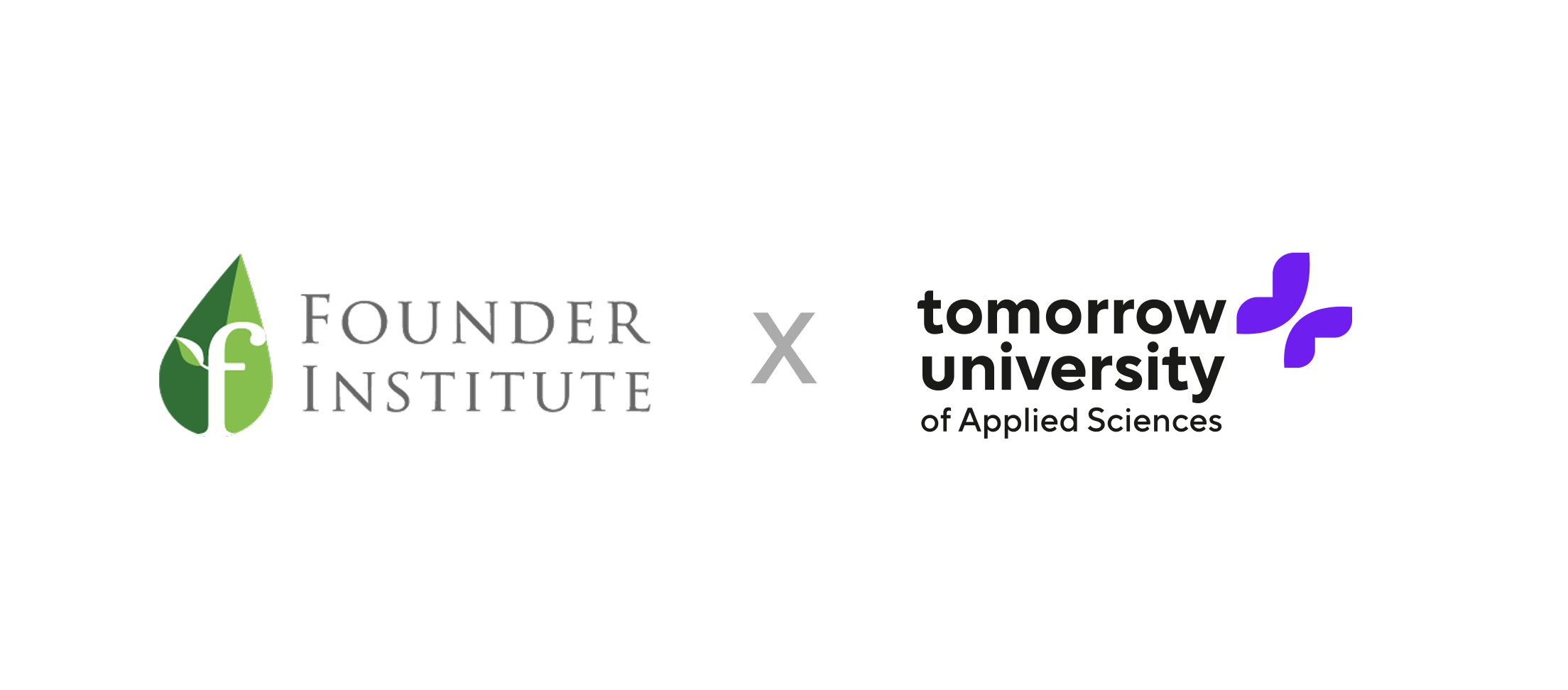
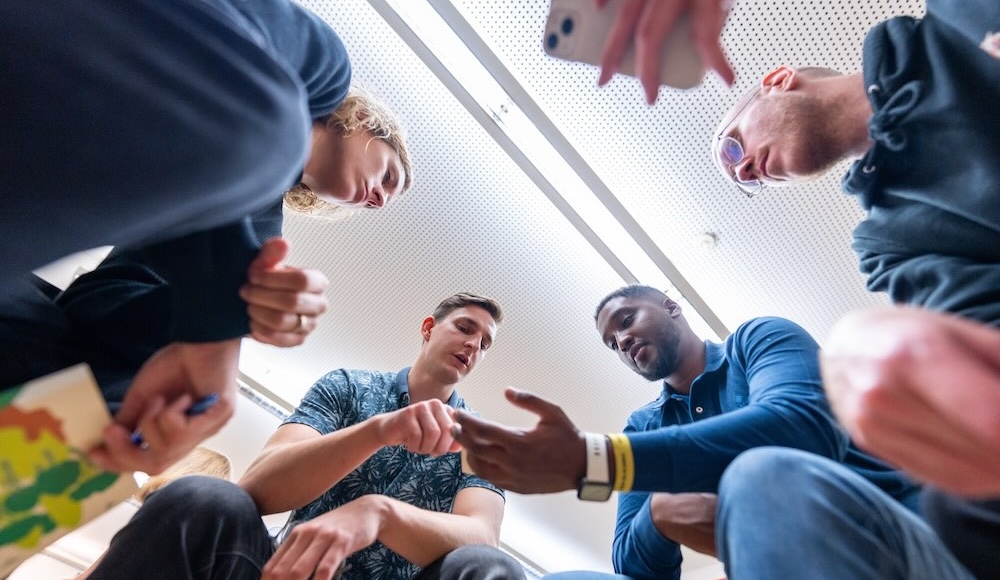

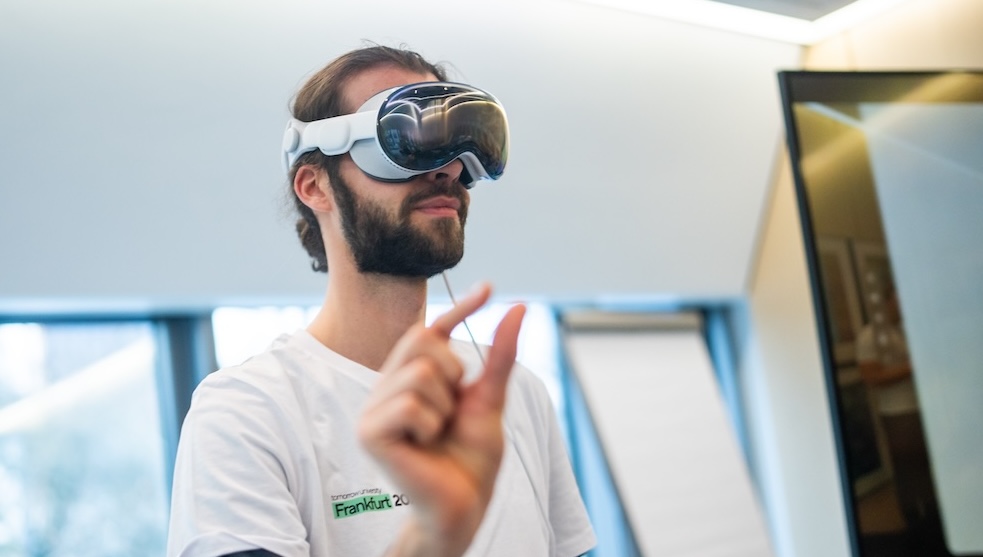
.svg)
.svg)


.webp)

.webp)
.webp)
.svg)
.avif)













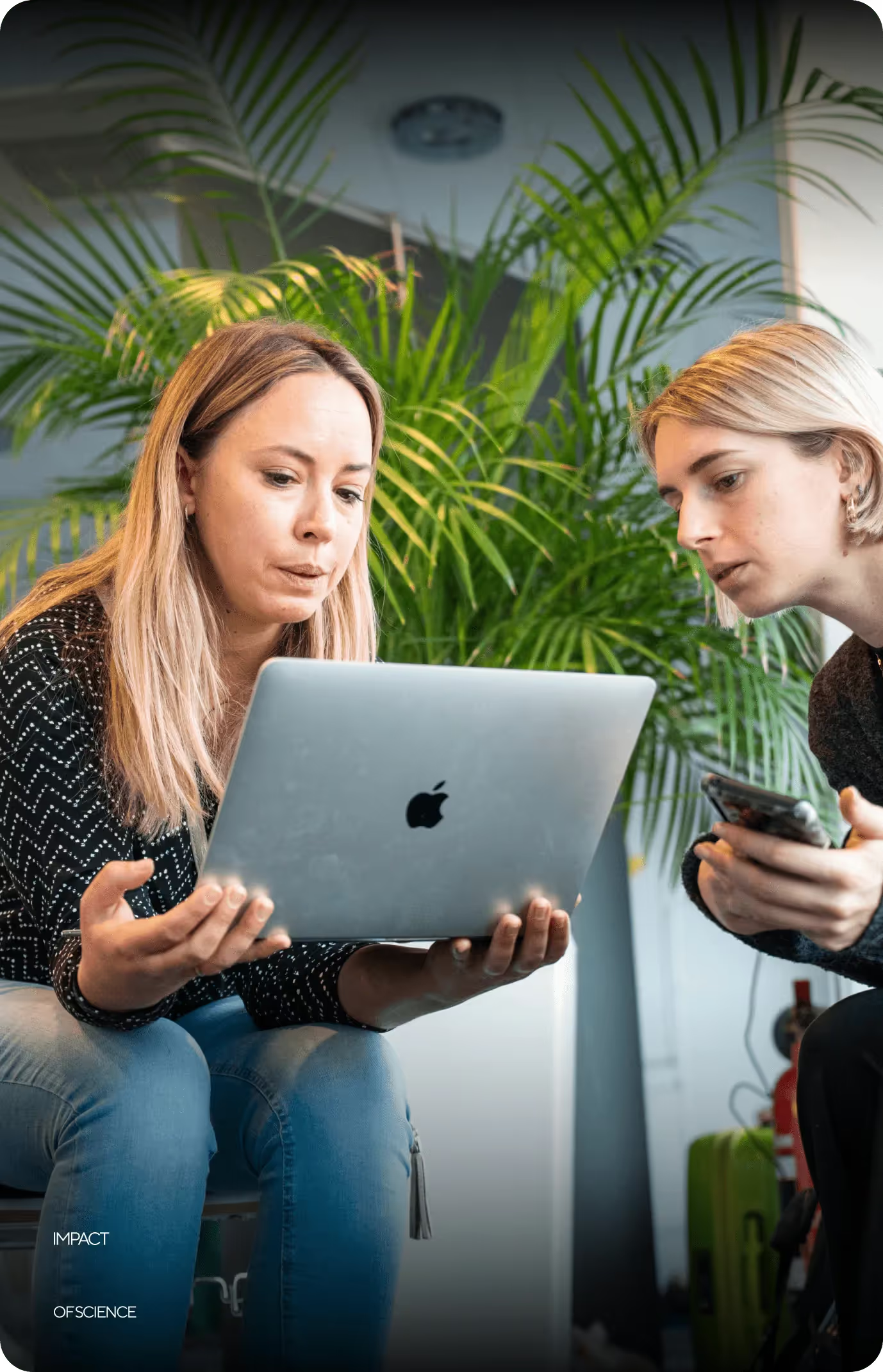

.avif)
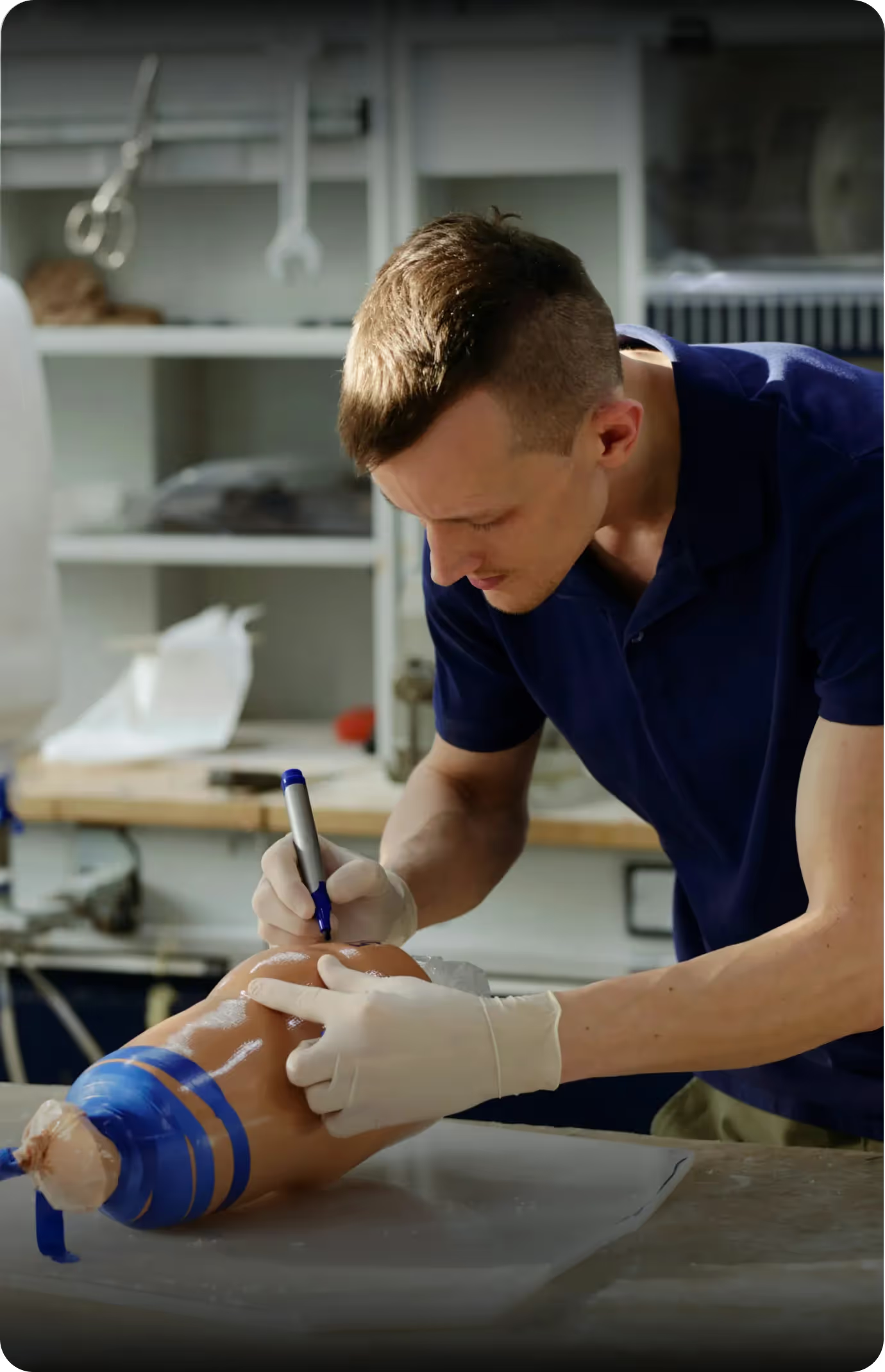

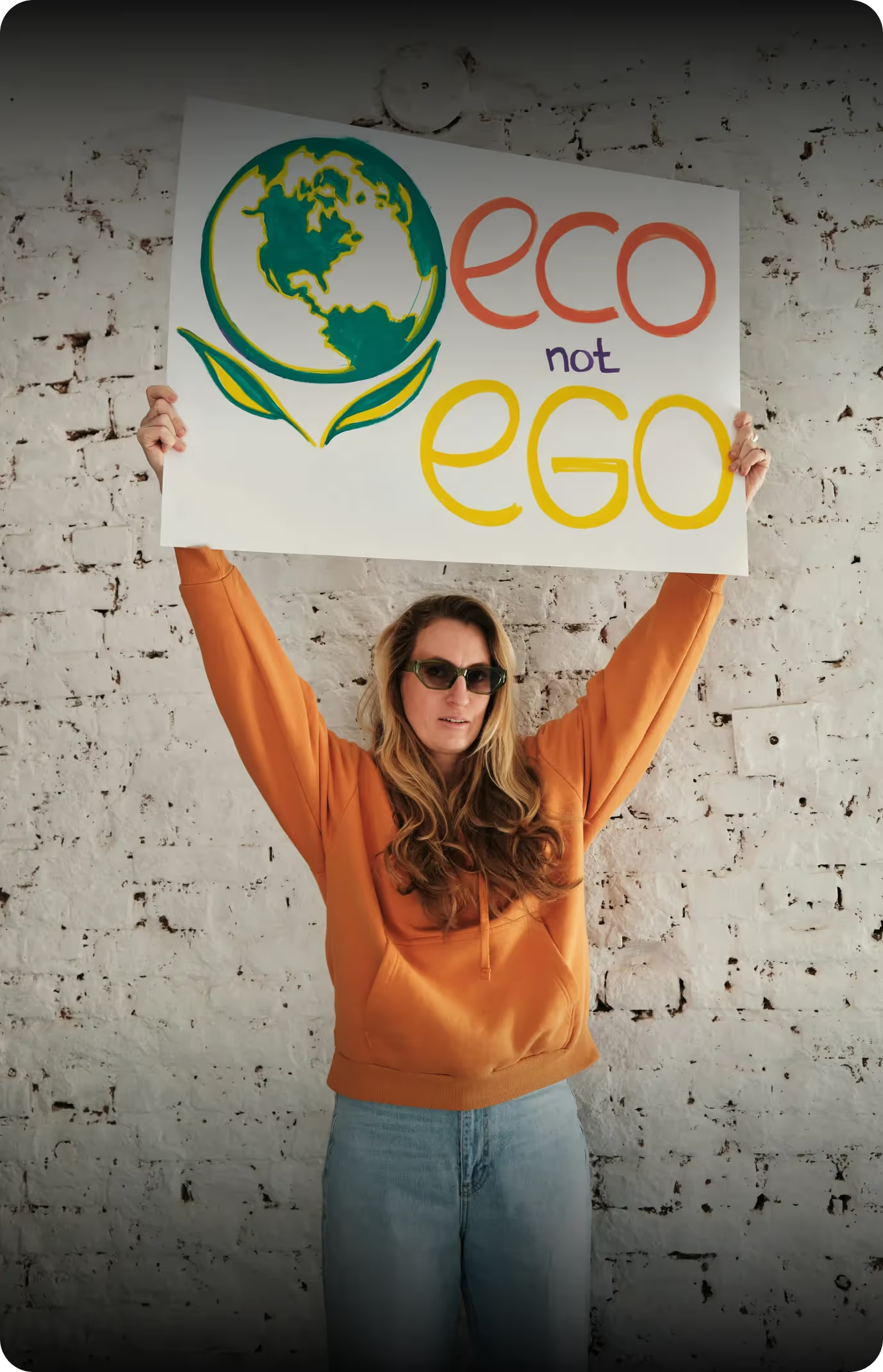
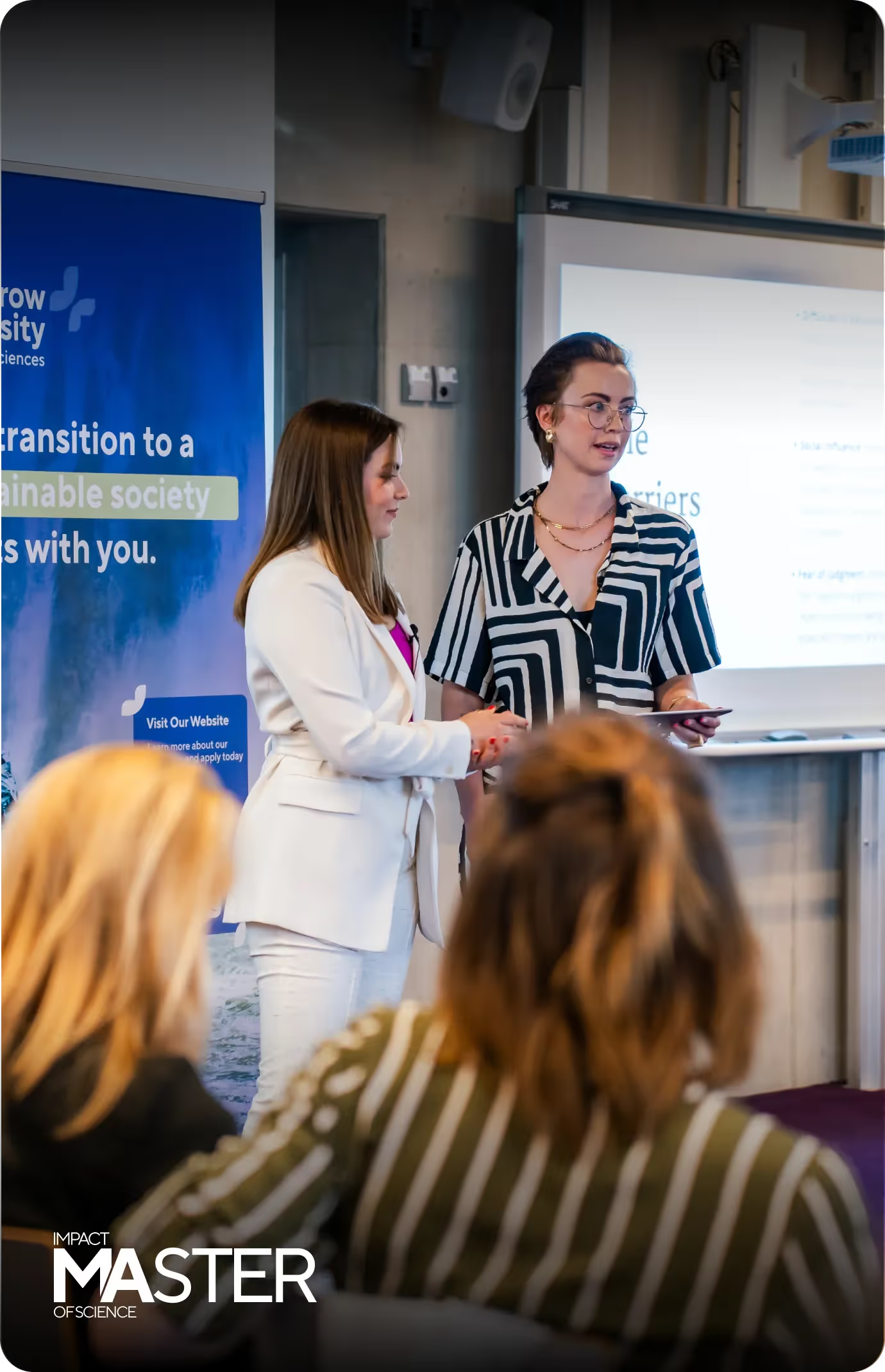
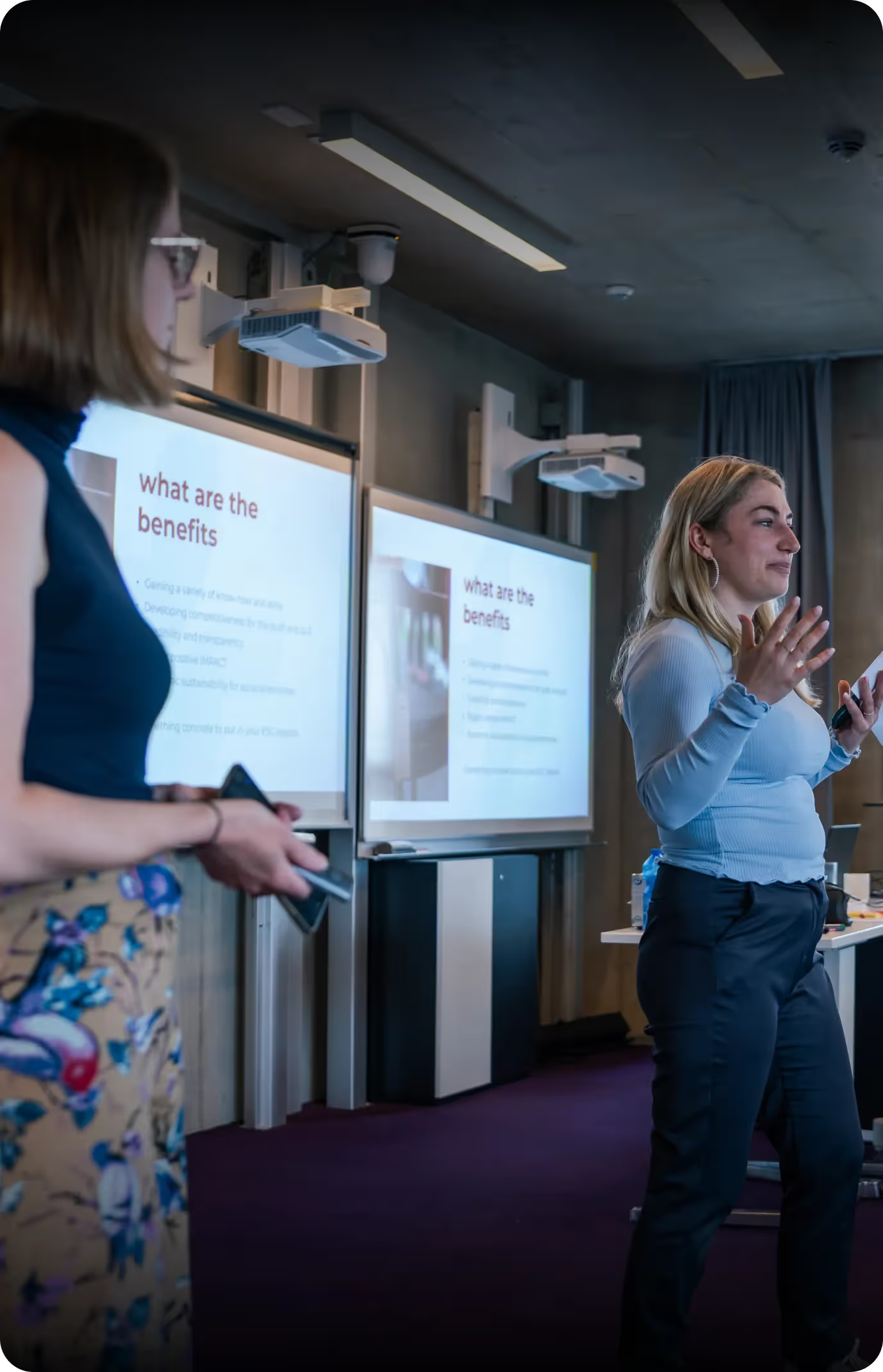

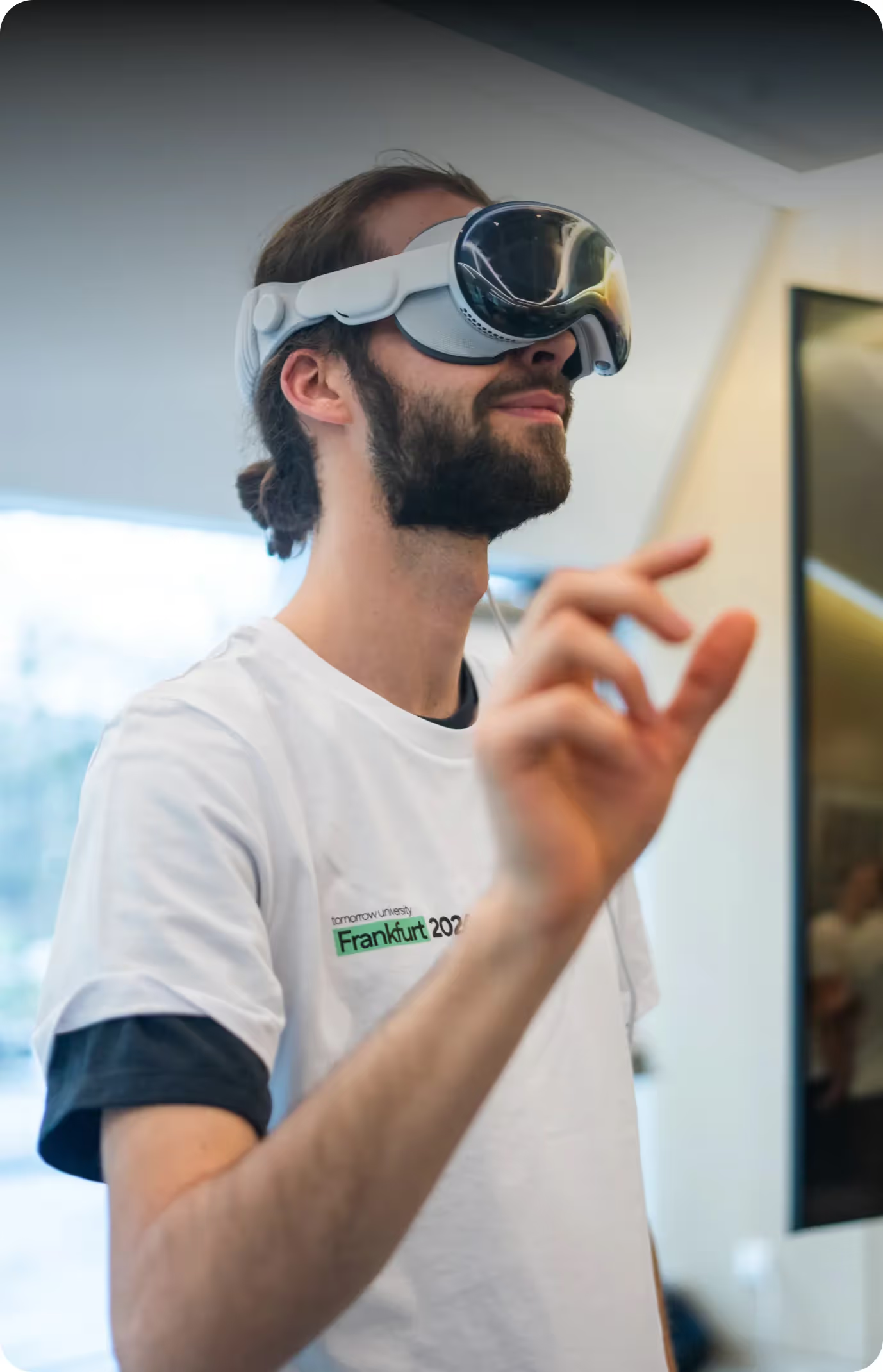
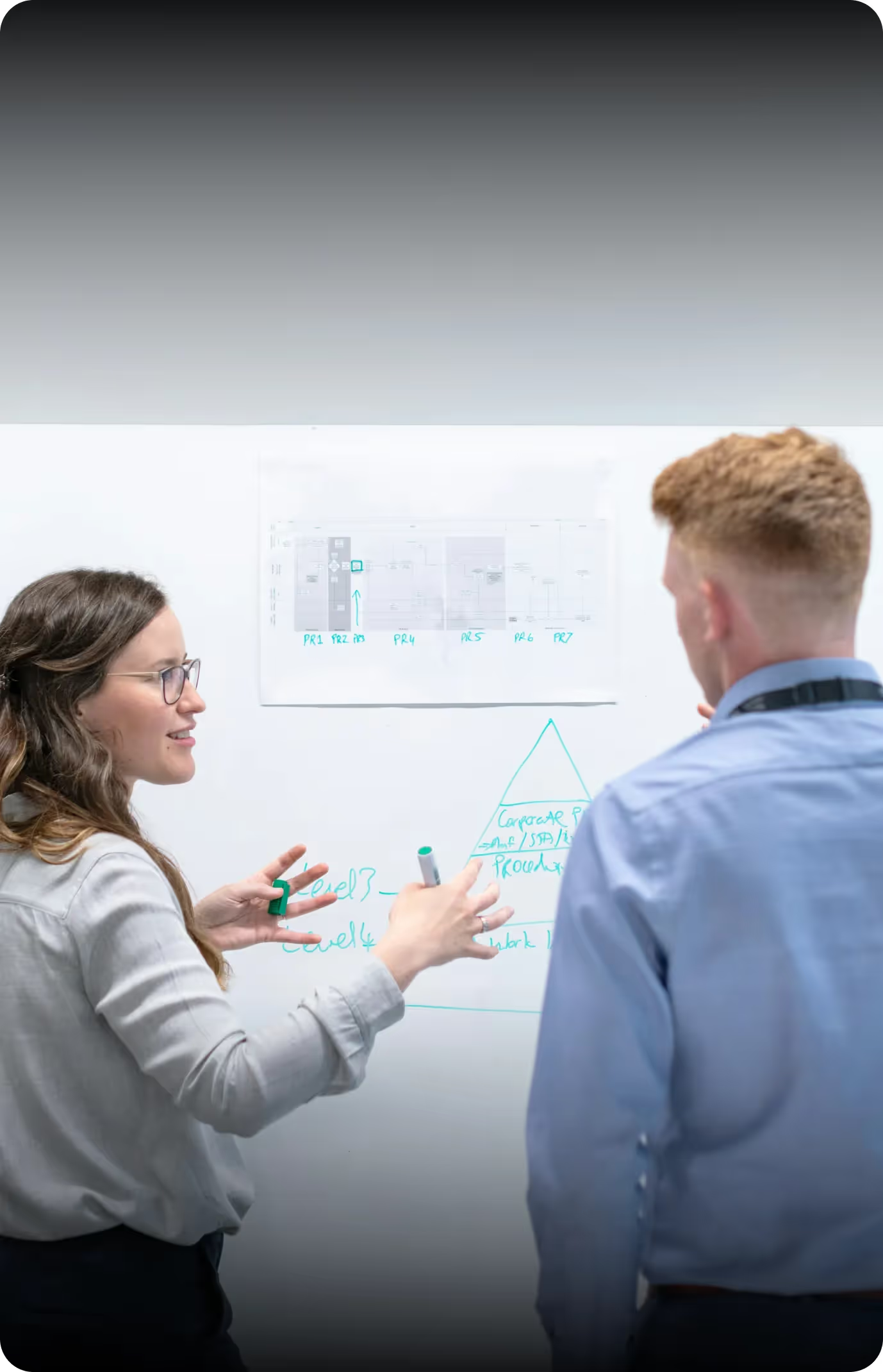

.svg)



.svg)


.webp)
.webp)
.webp)
.webp)

